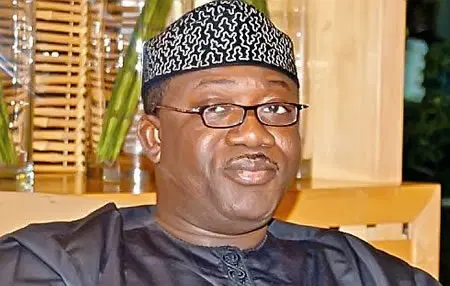Dr. Kayode Fayemi, former Governor of Ekiti State and ex-Minister of Solid Minerals Development, has criticised the federal government’s failure to release funds from the 2025 budget, nearly six months into the fiscal year. He made this known on Friday during a media and civil society roundtable in Abuja, describing the situation as deeply troubling.
Fayemi pointed out that with June just days away, no government ministry, department, or agency has received any allocation from the 2025 budget. He suggested that the delay shows a clear disconnect between the budget approved by the National Assembly and how it is being implemented by the executive branch.
The event, held to mark the 14th anniversary of the Freedom of Information (FOI) Act, was hosted by the International Press Centre (IPC) with support from the European Union as part of the EU-SDGN Phase II programme. Discussions centred on how the FOI Act can support electoral transparency and public accountability.
Reflecting on the journey of Nigeria’s democracy and transparency efforts, Fayemi praised the long-standing work of civil society organisations such as the Civil Liberties Organisation (CLO), Media Rights Agenda (MRA), and IPC. He recalled how his experience with CLO laid the foundation for further advocacy through MRA and IPC, describing it as a long process built on persistence.
He also revisited his controversial decision to declare his assets publicly in 2010 as Ekiti State Governor, questioning the idea of private declarations in a public office. He credited the FOI Act with helping expose budget padding, fake projects, and fraudulent contracts—issues often revealed through the work of civic tech groups like BudgIT.
However, he warned that having access to information doesn’t always result in meaningful accountability. According to him, those in power often know the truth but act on it selectively. “You can have information without transparency, and transparency without accountability,” he said.
Fayemi highlighted his efforts to promote fiscal transparency through the State Fiscal Transparency, Accountability and Sustainability (SFTAS) programme while he chaired the Nigeria Governors’ Forum. Under SFTAS, Ekiti State became one of the first to publish contract and procurement data online, encouraging peer review among other states.
IPC Executive Director, Lanre Arogundade, in his welcome remarks, emphasised the importance of using the FOI Act to improve governance and elections. He also celebrated the 14th anniversary of Ekiti State’s FOI Law—the first state-level FOI law in Nigeria—enacted under Fayemi’s administration. Fayemi was also honoured with IPC’s belated 2021 FOI Champions Award.
Despite the Act’s value, Arogundade expressed concern that its usage remains low. He stressed that the FOI Act is still a vital tool for tracking political financing and promoting accountability in elections. He reaffirmed IPC’s commitment to media professionalism, fighting disinformation, and supporting inclusive election reporting under the EU-SDGN initiative.
Representing the Attorney General of the Federation, Mr. Joseph Garuba criticised many public institutions for failing to comply with FOI requests. He said the Ministry of Justice had trained over 100 lawyers to improve FOI implementation and plans to train another 100 this year to drive better compliance.
Former House of Representatives member, Hon. Abdul Oroh, also contributed by calling for the creation of an Office of the Public Defender. He suggested a comprehensive review of the FOI Act by the National Assembly to improve its effectiveness.

